The artistic director of Marrakech International Film Festival discusses the importance of establishing the event as a significant global launchpad for films and talent from Morocco, the African continent and the Arab-speaking world.
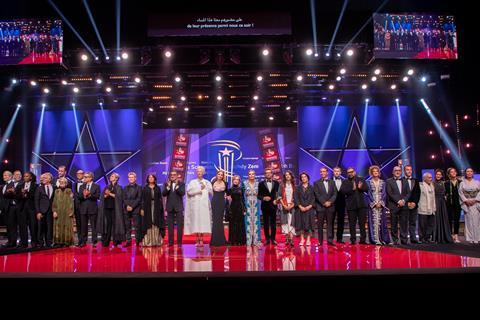
“We want to keep everything ‘human-sized’,” says Rémi Bonhomme, artistic director of Marrakech International Film Festival (MIFF), running from November 29 to December 7 in the ancient Moroccan city.
Bonhomme is referring to the expanding festival’s dual mission to work effectively for distributors launching films into the Moroccan market and as a showcase of Moroccan, Arab and pan-African films and talent to the international industry.
“The festival reflects the spirit of Marrakech,” says Bonhomme. “It’s a big celebration of global cinema.”
MIFF and its parallel regional talent incubator, the Atlas Workshops, have become a key stop on the end-of-year calendar. As it heads into its 21st edition, the festival is bolstering its programming with more talent conversations and thematic debates for local audiences as well as increasing its physical footprint after last year’s festival drew 21,000 registered guests and 300 industry professionals.
This year’s event features a new venue, namely the Meydene cultural centre’s cinema, where the Conversations series will take place. This is away from Marrakech’s landmark Jemaa el-Fnaa square where outdoor screenings have previously been held.
On the industry side, the festival is adding more initiatives focused on theatrical distribution. The five-day Atlas Workshops will run December 1-5, one day longer than previous editions. An extended Atlas Station programme will welcome 10 Moroccan talents for a bespoke programme that includes networking opportunities, work sessions, one-on-one consultations and crossover with other industry events.
The Atlas Distribution Awards, launched last year to support films from the Middle East and Africa at the festival with financial incentives for regional distributors, will return and add a day of discussions and exchanges. The programme has already supported 24 films for Moroccan distribution in the past year with cash support for distributors to facilitate their theatrical release strategy.
To help regional films secure international distribution, the festival has invited a delegation of around 20 predominantly European distributors, including executives from France’s Haut et Court and Ad Vitam, the UK’s Curzon and New Wave Films, and Germany’s Rapid Eye. “The role of big festivals today is to participate in a collective reflection about distribution,” suggests Bonhomme.
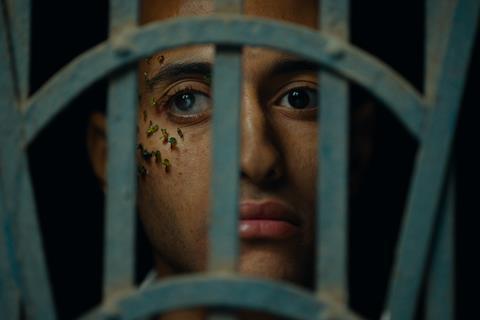
Films from the Middle East, Africa and the Arab-speaking world screening at the festival include 12 that have previously passed through the Atlas Workshops, among them Saïd Hamich Benlarbi’s Cannes Critics’ Week premiere Across The Sea and Muhammed Hamdy’s Venice Critics’ Week selection Perfumed With Mint.
Moroccan titles screening at the festival include Abdeslam Kelai’s Nocturnal Sonata and Jawad Rhalib’s Since I Was Born, and the world premiere of Simone Bitton’s Les Mille Et Un Jours Du Hajj Edmond.
Window to the world
After two years of Covid-fuelled cancellations and last year’s 20th-anniversary edition a low-key affair in the shadow of a fatal earthquake, outbreak of war in the Middle East and the actors and writers strikes in Hollywood, this year’s edition is again taking place against a tumultuous global geopolitical backdrop.
“Now more than ever, in this global context, we need festivals like Marrakech that represent a unique meeting place for audiences and passionate voices in cinema,” says Bonhomme.
The festival aims to foster “exchanges and dialogue through cinema”. Bonhomme explains: “Our role is to defend filmmakers’ points of view about the different realities in the world, [and offer] another perspective of war outside the tragic images we see in the news every day.”
Films across all sections will explore the convergence of art and politics including Mohammad Rasoulof’s political thriller-meets-family drama The Seed Of The Sacred Fig, about life under the Iranian regime, and David Oelhoffen’s 1980s Lebanon-set The Fourth Wall about an idealistic theatre director who stages a play against the backdrop of civil war.
The 11th Continent programme focuses on titles from underrepresented countries that challenge stereotypes and conventions. These include Ali Asgari’s Higher Than Acidic Clouds about what it means to be an artist under Iranian censorship, and Inadelso Cossa’s The Night Still Smells Of Gunpowder, which explores the memory of the civil war in Mozambique.
Among the 14 films in Competition, Bonhomme cites “portraits of strong, free, independent women”. He describes Hind Meddeb’s documentary Sudan, Remember Us as “an ode to resistance of Sudanese youth” and highlights The Maw Naing’s Ma – Cry Of Silence, about a young Burmese woman working in a garment factory in Myanmar who finds her voice against the backdrop of political unrest.
Several films mirror current events through a prism of more intimate family drama: Palestinian filmmaker Scandar Copti portrays life in modern Israel in Happy Holidays, Mo Harawe’s The Village Next To Paradise is set against the backdrop of drone strikes and death in Somalia, and Damian Kocur’s Under The Volcano is about a vacationing Ukrainian family who become refugees overnight after Russia’s invasion.
The festival kicks off with a gala screening of Justin Kurzel’s crime thriller The Order, about a far-right group in the US’s Pacific Northwest in the 1980s. Bonhomme calls it “the perfect example of a filmmaker benefitting from the festival exposure who is returning to open it.” Kurzel’s Snowtown won the jury prize and actor award at Marrakech in 2011.
US director Jeff Nichols will mentor rising talent at the Atlas Workshops where 17 projects in development and 10 films in production or post-production are participating. “Take Shelter resounded with a whole generation of filmmakers,” says Bonhomme. “The directors are thrilled he’ll be there to give advice.”

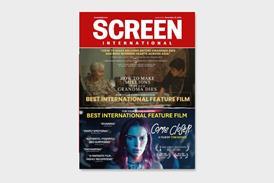



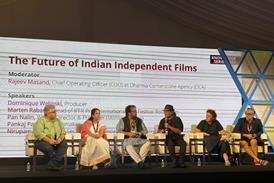
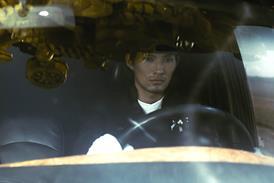







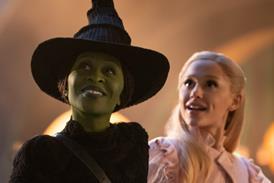
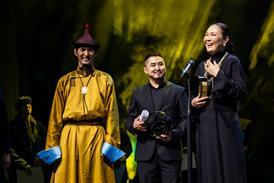
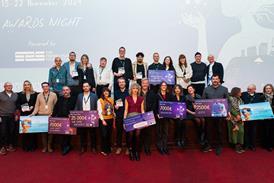








No comments yet